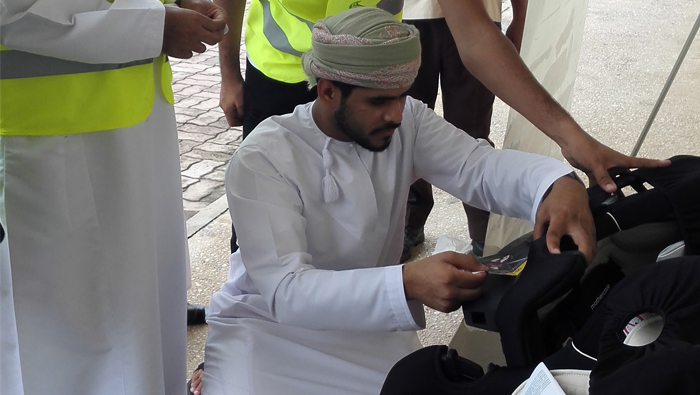
Muscat: As Oman’s new road safety law comes into effect, traffic experts have suggested that it might take time for the public to adjust to them.
With the Royal Oman Police is spearheading a campaign to make Oman’s roads safer for people throughout the country, Ali Al Barwani, CEO of Oman’s Road Safety Association, said that while the new laws were very good, it was likely that people would take time to follow them fully.
“The Royal Oman Police is doing a very good thing, in terms of making the roads safer, and if you look at the laws they have brought in, they are all meant to reduce the number of distractions on the road, because this is often the number one cause of accidents,” he said, speaking to the Times of Oman.
“People are still confused as to the extent of the law, but I think this is only natural, because it is new and they will take some time to fully understand it.
“But people in Oman know the importance of following all the laws because they know that this is for the benefit of all of society, and I am sure they will follow all the laws in the coming days,” added Al Barwani. “It’s just that this is new and to get used to it may take time.”
While wearing seatbelts has been made mandatory for those sitting in the back of vehicles, other points in the new traffic laws include the compulsory use of child seats for children aged four and under, and the banning of mobile phone holders in vehicles.
“I understand that there might be some who find the mobile phone holder useful, but this is mainly used for GPS, so drivers need to keep this in a safe place, because to look at it constantly while on the road will cause a distraction and then you are causing harm to not just yourself, but those around you, as well,” explained Al Barwani.
“The danger is greater when either you, or the people around you, happen to be mothers and fathers, because then you are putting the life of an innocent person in danger. For the safety of everyone, I think this is a small price to pay.
“That is also the reason the ROP is stressing the importance of the child car seat,” he said.
“The bones of a child are not fully developed and they will suffer greatly when an accident takes place. To them, an accident at a speed of even 20kph can be dangerous. We, at ORSA, feel very strongly about the importance of child car seats, and we have been talking to many suppliers, who tell us that there is now a very strong demand for these seats, since the new laws were announced.
“It may take some time for all parents in Oman to get these seats, but child safety should be our number one priority, and the ROP is also very active in this, so I am sure that in a short amount of time, everyone will be following this law properly,” added Al Barwani. Residents in Oman also said it would take some time to get used to the new laws, but realised that it was for the greater good of everyone.
“I will miss my mobile phone holder,” noted Majid, an Omani who lived in Boushar.
“I use it to play music, look at the GPS, even call people, but if it is for the good of everyone, I can
understand. To be fair, I do look at my phone quite often while driving, so maybe this law is a good thing.”
Savitri, an Indian expat living in Muscat, added, “Children often have a tendency to jump around in the back seat, and this ruling, with regards to child seats and compulsory seatbelts, will ensure they sit still and don’t disturb the driver in front, which is very important on the road.”